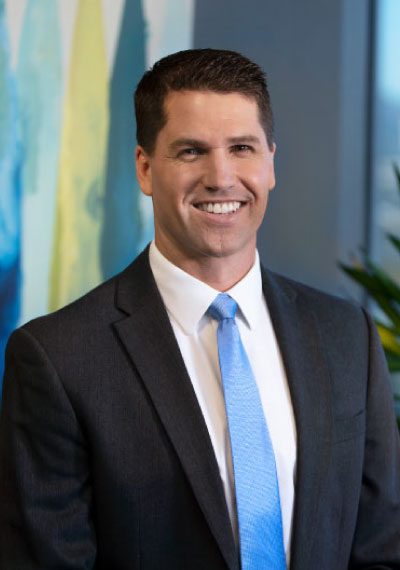Three years after the landmark “Setting Every Community Up for Retirement Enhancement” or SECURE Act passed in 2019, Congress has implemented new changes in what’s referred to as SECURE Act 2.0. The original bill encouraged more Americans to save for retirement through provisions such as increasing the required minimum distribution (RMD) age and expanding access to retirement accounts, among others.
SECURE Act 2.0 has the same goal in mind, and while the enhancements are minimal, there are several new rules and effective dates to be aware of as you plan for retirement. We’re sharing the top five new changes with savings or tax consequences for highly compensated employees, retirees, and ultra-high-net-worth individuals.
#1 The RMD Age Has Increased to 73
If you turn 72 in 2023, you no longer have to take a RMD this year and can wait to begin your RMDs in 2024 when you turn 73. The RMD age will remain at 73 until the age increases to age 75 in 2033.
You may consider doing a Roth conversion during this additional year, enabling you to grow your retirement savings tax-free.
#2 Roth-Related Changes
The following two Roth-related changes are included in SECURE Act 2.0:
- Employer Contributions: Effective immediately, employees can choose to have employer contributions made as Roth contributions. As a result, contributions will be included in an employee’s gross income in the match year but will be a tax-free distribution in retirement. Previously, employer contributions could only be made on a pre-tax basis and would be taxable in retirement.
- RMDs for Roth 401(k) Owners: Effective 2024, Roth 401(k) owners will no longer need to take RMDs; this change follows suit with Roth IRA rules. Previously, employees who contributed to a Roth 401(k) were required to take distributions when they reached RMD age.
#3 Catch-Up Contribution Limits
Various changes to contribution limits will roll out over the next couple of years, including:
- In 2023, the catch-up amount for 401(k) retirement plan participants over 50 has increased to $7,500.
- In 2024, highly compensated employees who earn over $145,000 annually must make their catch-up contributions as Roth contributions.
- In 2025, there will be additional catch-up contributions for those turning 60 to 63 that year. This limit could be up to $11,250 a year or more, depending on which formula the bill uses. This change will allow employees to save more in their retirement accounts during their prime earning years.
#4 529 to Roth IRA Transfers
This provision allows individuals to roll over up to $35,000 from a 529 college savings plan account into a Roth IRA for the beneficiary. Caveats include that the 529 account must be active for at least 15 years, and rollovers will be subject to annual Roth contribution limits. We expect to get more clarity on how to do this and what’s permitted; however, this could be a powerful wealth transfer opportunity for parents or grandparents to save in a Roth account for their children or grandchildren.
#5 Expansion of Qualified Charitable Distributions
Qualified Charitable Distributions (QCDs) are one of our favorite gifting techniques for charitably inclined clients over 70½. Currently, QCDs are capped at $100,000 per year, which has never changed. However, effective 2024, the $100,000 limit will be adjusted annually for inflation.
Additionally, beginning this year, a one-time QCD up to $50,000 is now allowed to certain charitable remainder trusts or as charitable gift annuities. As we’ve helped many clients establish charitable remainder unitrusts (CRUTs) in the past, this change is intriguing as it provides income to a named beneficiary during a grantor’s life, with the remainder of the trust directed to a charitable cause.
However, because this adds a fair amount of complexity, legal work, and ongoing administrative costs, the size of this type of CRUT may only be worthwhile for some situations. A more exciting option to consider is a Charitable Gift Annuity (CGA) set up by an institution, with donations made directly to it, similar to a university endowment. The donor may be able to save on administrative costs and tax-filing fees by choosing this route. As we’ve outlined, several SECURE Act 2.0 changes are rolling out over the next few years that may affect your retirement and tax planning. Please get in touch with one of our CCMI advisors for assistance in saving more money, paying less in taxes, and navigating the new rules related to SECURE Act 2.0.
PLEASE SEE IMPORTANT DISCLOSURE INFORMATION at https://myccmi.com/important-disclosures/
CCMI provides personalized fee-only financial planning and investment management services to business owners, professionals, individuals and families in San Diego and throughout the country. CCMI has a team of CERTIFIED FINANCIAL PLANNERTM professionals who act as fiduciaries, which means our clients’ interests always come first.
How can we help you?






